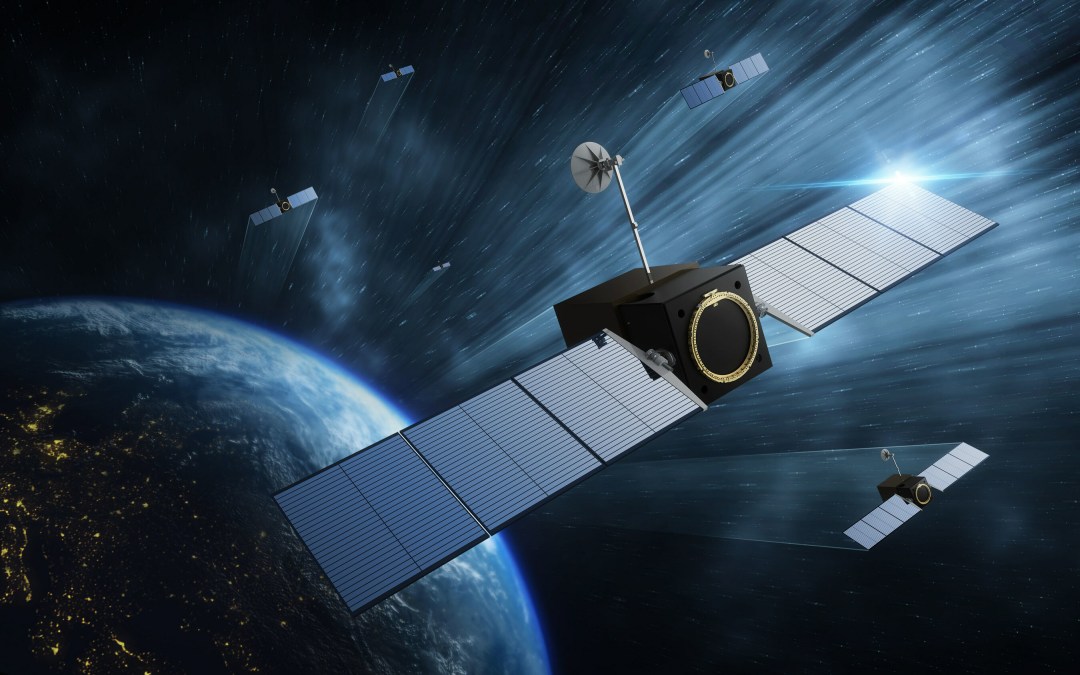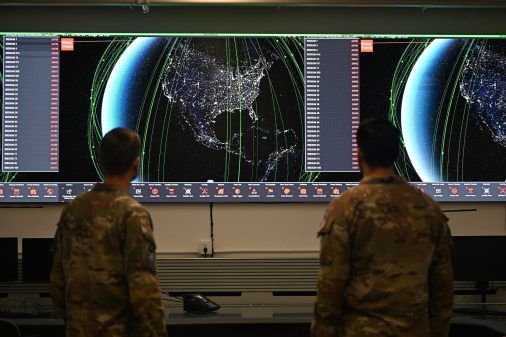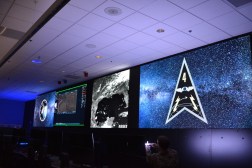Space Force MEO missile-warning satellites pass critical design review

The Space Force’s acquisition branch announced Monday that the first group of satellites for its future constellation designed to track high-speed missiles from medium-Earth orbit (MEO) has completed critical design review.
The successful review paves the way for six systems made by Boeing’s Millennium Space Systems — part of Epoch 1 of the service’s Resilient Missile Warning and Missile Tracking – MEO (MEO MW/MT) program — to move into production. Those satellites are on track to be launched in late 2026, according to a Space Systems Command press release.
“We are rolling out these capabilities as fast as possible. The design is maturing very well and once on-orbit, will be instrumental in delivering some of our early missile warning and missile tracking capabilities,” Col. Heather Bogstie, senior materiel leader of SSC’s resilient missile warning, tracking and defense (MWTD) acquisition delta, said in a statement.
The MEO MW/MT constellation is part of a larger effort to create a space architecture that is able to detect dim or high-speed objects, such as hypersonic missiles that can fly faster than Mach 5 and are highly maneuverable.
To do so, the Pentagon is shifting away from launching expensive satellites in higher orbital regimes and instead focusing on proliferating systems in low- and medium-Earth orbits.
Similar to the Space Development Agency’s Proliferated Warfighter Space Architecture, the MEO MW/MT effort is being developed in phases — referred to as “epochs” — that are designed to deliver the latest capabilities in increments.
The satellites that have passed critical design review are part of Epoch 1, which overall will “consist of up to nine” space vehicles and is intended to “lay the foundation for ground operations and communications infrastructure,” according to an SCC press release.
“We aim to deliver resilient, integrated MW/MT solutions from MEO to counter emerging hypersonic and other missile threats,” Bogstie said. “Executing on our mission to field combat-ready forces is why this architecture is crucial for safeguarding the nation and its allies, providing regional global missile defense capabilities, and operating in a contested environment.”
Boeing’s Millenium Space Systems and Raytheon each received contracts in January for the Epoch 1 prototypes, and budget documents for fiscal 2024 indicated that the Space Force plans to buy three space vehicles from Raytheon and six from Millenium. In June, L3Harris became the third potential vendor for Epoch 1 when it received a one-year contract for sensor payload design.
Although Space Systems Command did not specify in its release Monday which vendors completed critical design review or which six space vehicles would move into production, Millennium Space announced Monday that it had passed the review for the program and is preparing for “production and integration.”
“Following completion of the space vehicle CDR, SSC exercised contract options for space vehicles two and three and the sole-source award for space vehicles four through six,” a company press release stated.
In a statement to DefenseScoop on Tuesday, Lt. Col. Nathan Terrazone, materiel leader in SSC’s Space Sensing Resilient Missile Warning Epoch 1 program office, said: “Millennium Space Systems has passed CDR and will commence production of their six Epoch 1 space vehicles. Space Systems Command & Raytheon continue to work together to complete Raytheon’s remaining CDR actions and move forward on production of the remaining three Epoch 1 space vehicles.”
Along with the initial missile warning and missile-tracking capabilities, Epoch 1 will serve as prototypes for subsequent epochs — planned for every two to three years. SSC plans to award contracts for Epoch 2 in late 2024 or early 2025, according to a report from Breaking Defense.
Updated on Nov. 28, 2023 at 12:40 PM: This story has been updated to include comment from Lt. Col. Nathan Terrazone at Space Systems Command.






